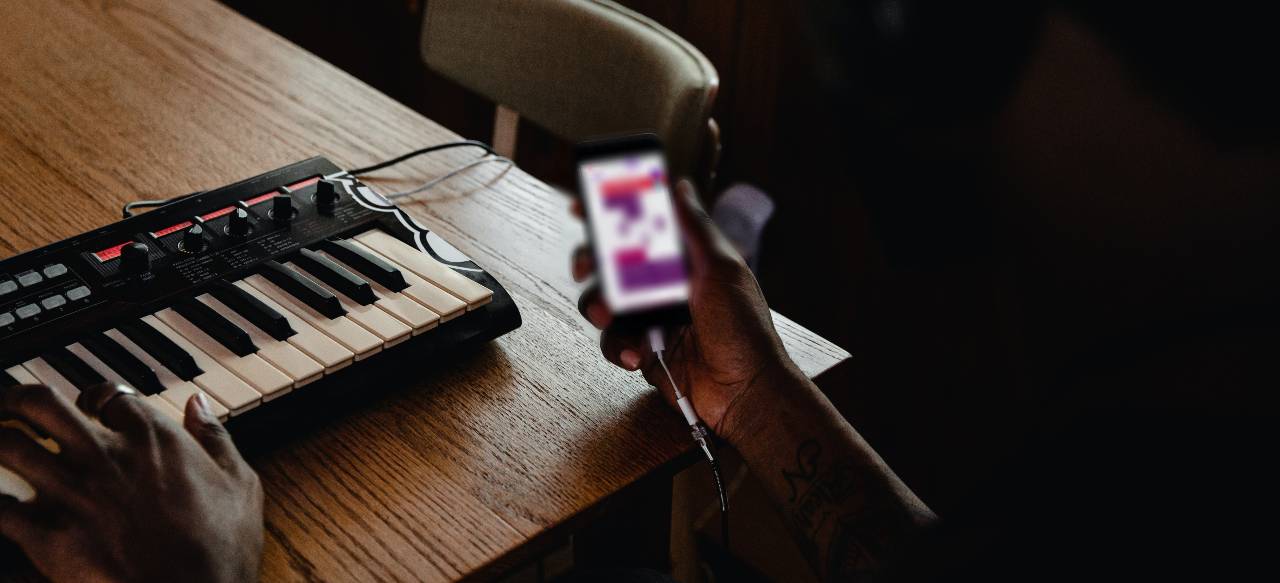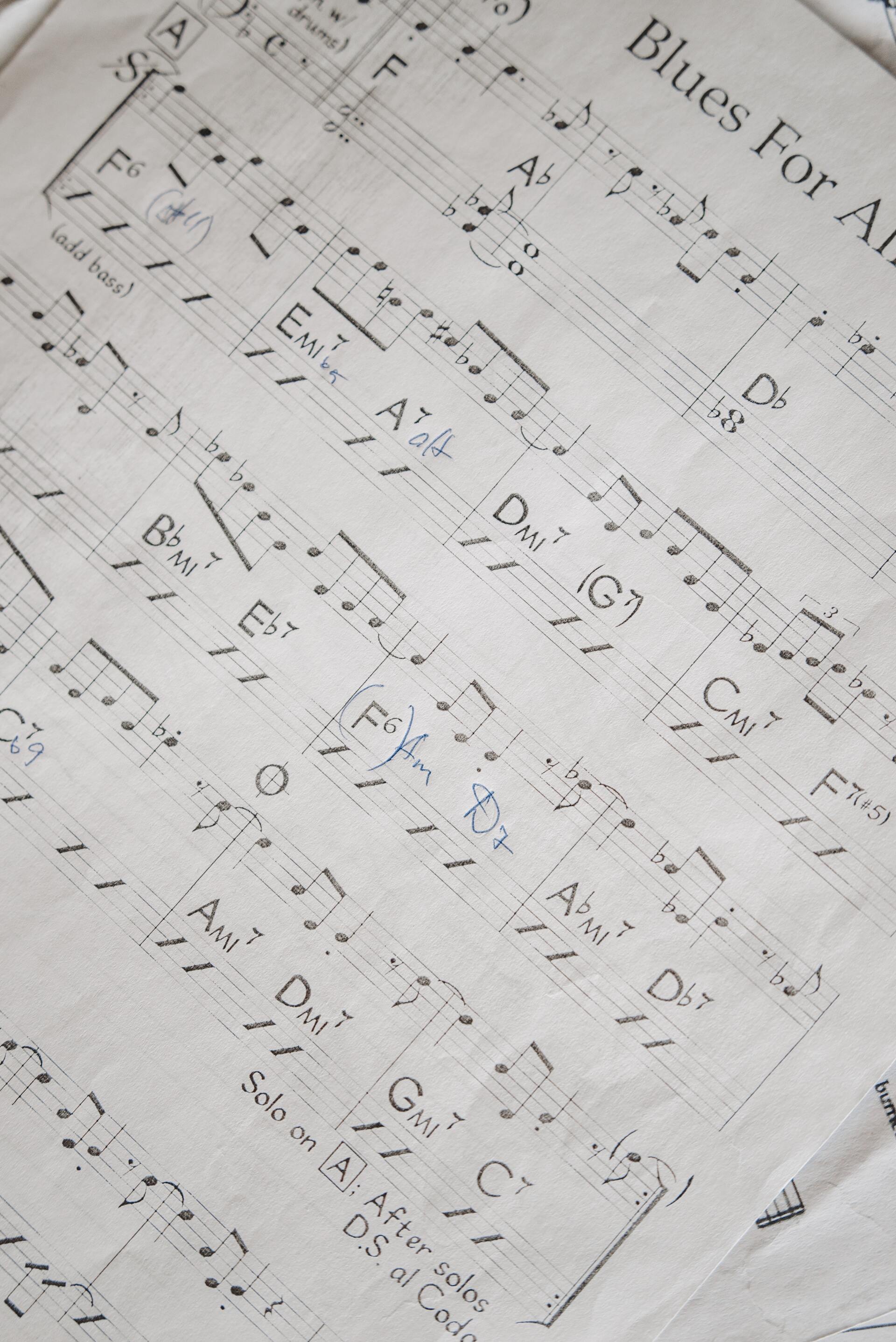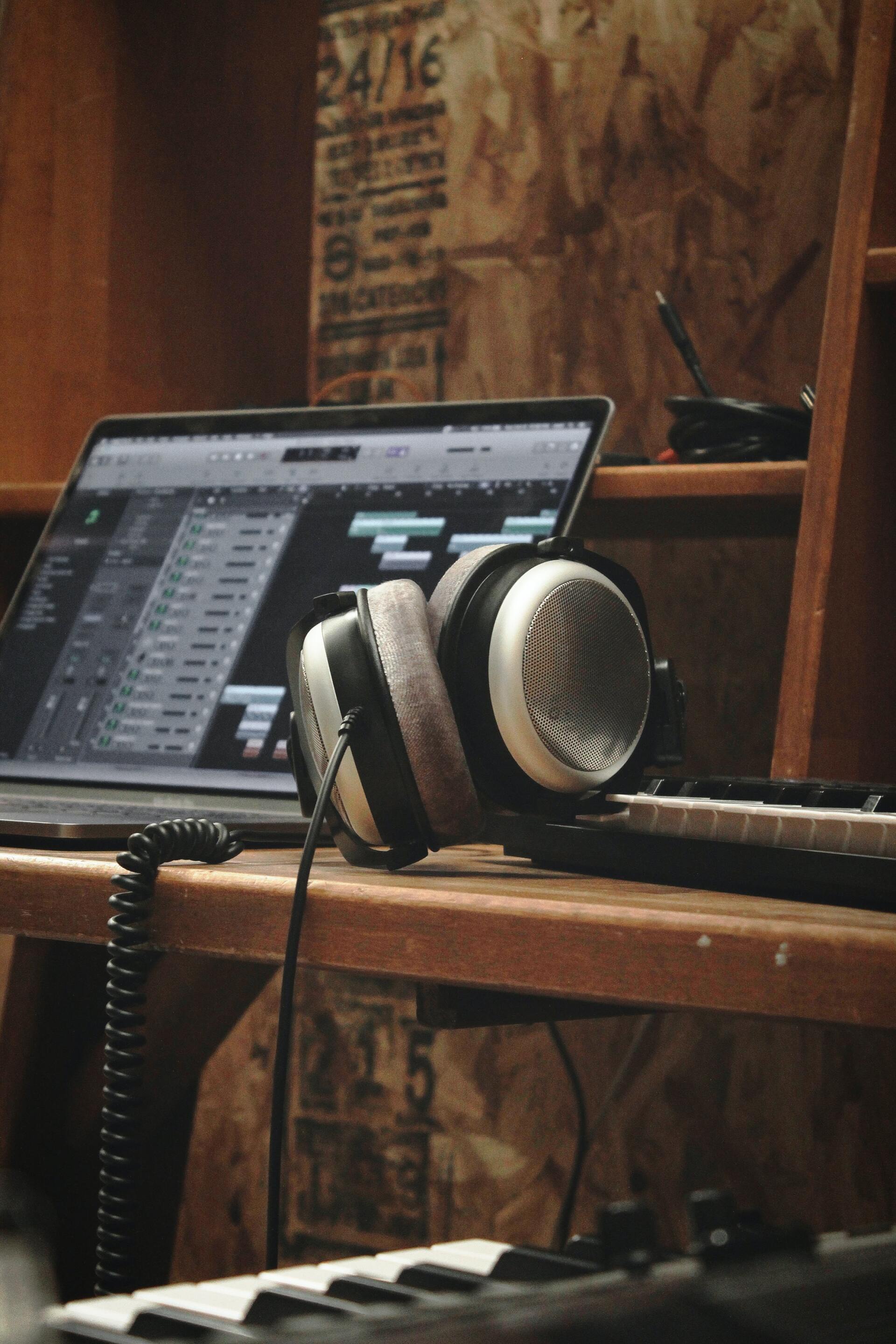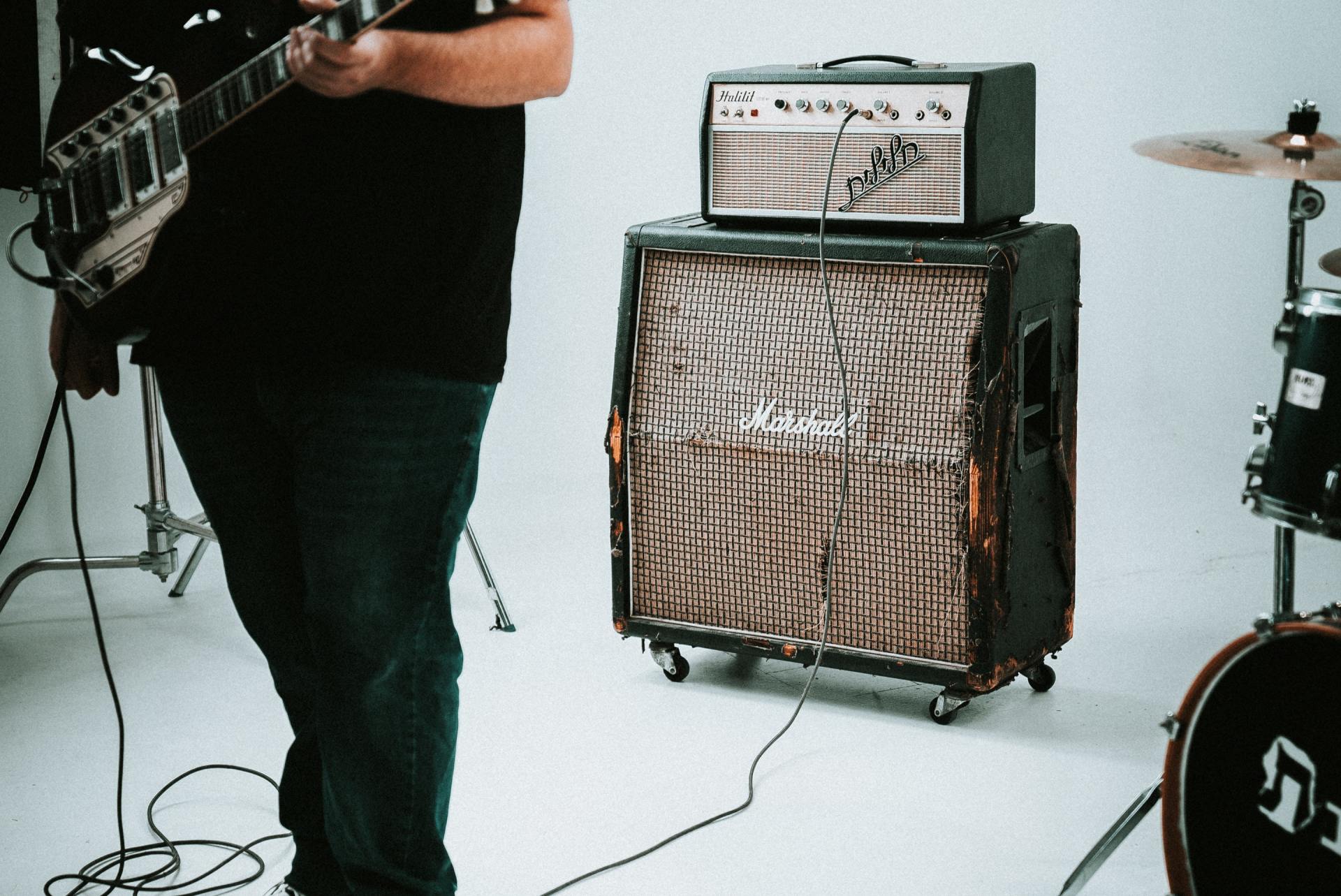The 7 Essential Qualities of Musical Directors
As anyone in the music business knows, hit songs and electric performances don’t spring up from anywhere. While rock stars, eccentric producers, and pyrotechnics may be first to mind, there is a central peg holding these shows, concerts, and tours together: the musical director.
What is a Musical Director?
Musical director is an administrative-artistic role, responsible for any and all music aspects of a performance (one-night show, full tour, televised appearance). They have a commanding influence over many aspects of a production, which may even involve them taking an active role in the production team or the show itself.
Many use the terms musical director and bandleader interchangeably, which is fine in a lot of cases. If you’re really looking for differences, a musical director is a recognized position, whereas a bandleader is generally used to mean the chief member of a group. They can share some of the same responsibilities, though, depending on how the group operates.
What does a Musical Director do?
In the worlds of orchestra and opera, musical director (aka conductor) is the most senior role. For performing bands, however, it’s a far more dynamic position. Focusing on the event and tour side of things, the musical director (MD) can occupy themself with many different tasks:
- Deal with contracts and client expectations
- Hire musicians and backing members
- Ensure the artists are understood and feel appreciated
- Select compositions, rearranging or transcribing as appropriate
- Schedule performance and recording rehearsals
- Refining and smoothing the material
- Operate as an in-house producer
- Convey technical needs to production staff
- Conduct live and recorded performances
- Play an instrument in the band
In actuality, there’s a lot more that a musical director may be required or inclined to do. Ultimately, they are driven by the desire to create the best version of something, whether that’s ensuring a classical performance is true to the sheet music, or adapting existing material for the wildest gig.
How do Musical Directors influence Music?
As these professionals are musicians in their own right, they are passionate about the art. It’s expected for musical directors to have a strong grasp on music theory, composition and performance practices. Their insight is valuable, yet they must collaborate with artists to find the best solution that everyone is comfortable with.
1. Transcription
In order to perfect a performance, it’s essential that players are completely aware of melodies, harmonies, and timing. A musical director will transcribe the heard into the written. It may end up as detailed charts, but simpler chord sheets or lead sheets are adequate much of the time.
2. Rearrangement
Musical directors may adapt a song so that it works better for those involved. This can include rewriting notes (melody & harmony), switching instruments (timbre), cutting sections (form), changing key (pitch), volume (dynamic), layering instruments (texture). Put simply, musical directors are prepared to interact with all elements of a song.
3. Production
As musical directors are responsible for liaising between artists and the production crew, the final sound is very much in their hands. Of course, the director must communicate the base technical needs of the band. However, they can also guide the producer’s and/or sound engineer’s decisions on mixing and mastering.
4. Inspiration
A musical director isn’t just interested in jotting down catchy tunes; the artists behind the music are just as interesting. Recording sessions and live shows are a lot of work. Inspiring performers to play at their best is one of the most overlooked director tasks. This is as simple as listening to their thoughts, accommodating their needs, and matching their passion for the project.
The Essential Qualities of a Musical Director
No two musical directors are the same, but certain qualities will do you well, regardless of project specifics.
1. Clarity
“Imagination creates reality,” as German composer Richard Wagner once said, though it isn’t always that straightforward. “Without craftsmanship,” replies Johannes Brahms, “inspiration is a mere reed shaken in the wind.”
Forgetting about reeds and reality for a moment, a musical director is a project manager. As with any endeavour, aims and objectives must be clear and actionable. When people are unable to envisage the end result, motivation can plateau, making the project infinitely more difficult.
Without sufficient instruction, musicians may misinterpret the message. Players who simply don’t know how to fulfill expectations are left frustrated, which can have a detrimental effect on team morale. In order to get the best from people, a director must be able to transform wispy imaginings into explicit directions.
While musical directors often do work on movie scores, they have to remember that they’re not in one. Performers don’t magically know everything in advance, and directors who aren’t appreciative enough of this will find their projects far more laborious.
Taking a vision and molding it into real-world action happens every day, and not just within the music industry. A collaborative venture like a concert, show, or album, however, does demand a logical, level-headed leader to make that process happen.
2. Leadership
With the best of intentions, musical directors may let their perfectionist passions rule. It’s important to remember that a music production is a democracy, not a dictatorship. Having laid out the overarching vision, a director should be able to take a step back, where the unique combination of creative talents can put the theory into practice.
Musical directors absolutely hold an immense wealth of knowledge, yet it’s integral that they guide the proceedings and not completely control them. With that being said, a musical director must be prepared to pull rank and make the appropriate changes.
In an ideal world, the assembled team will be entirely competent, but when criticism is required, a great leader will recognize how best to offer it, namely politely and constructively.
Criticism should not be embarrassing, but a fundamental part of course correction, keeping performers and production staff on the right track, adhering to the wider vision. Positive feedback is just as useful to maintaining a healthy working atmosphere. Above all, a musical director should lead to inspire, not micromanage.
3. Intrapersonal Skills
Music production goes far beyond instrumentalists and chord sheets. A musical director has to translate their ideas to many departments. They are the bridge between artists and composers, the performers, the production team, not to mention clients, creative heads, and benefactors.
Firstly, the artist/composer must feel that they are in good hands. Though they are concerned foremost with the musical properties of the piece – structure, tonality, and texture – it’s just as vital they feel generally comfortable with everyone going on around them. When it comes to the performance, it is their music that must be brought to life.
At the same time, a musical director is focused on delivering all that the performers need to correctly interpret the songs and achieve the vision. Expressive elements like dynamics, speed, and accents make a huge impact on the piece. Generally, performers are able to help each other with these elements, though the musical director has the final say.
With artists and performers synced up, the job of the musical director is far from over. The technical needs of everybody in the band must be communicated to the production staff. After all, it is the final variable for what an audience hears. The smallest touches can have significant effects, which are again managed by the director.
From start to finish, it’s all about keeping in line with the musical vision of the event.
4. Team Spirit
Even though musical directors have their eagle eyes everywhere, this position requires a heap of team spirit. The best directors simultaneously lead and follow, skilled at knowing when their input is needed and when the creativity of others should shine.
The clue is in the name, meaning that the musical director needs to direct the team. If there is genuine trust between them, progress will come quickly, and dare we say effortlessly. A concert band can involve as many as eighty musicians, but the fun doesn’t stop there. A musical director must collaborate with production teams and event staff within various types of institutions.
The other critical element of team spirit is open-mindedness. Despite the mass of experience that musical directors cultivate, everyone has their blind spots. Brilliant suggestions can occur unexpectedly, at which point a musical director decides how best to act.
A stringent director, uninterested in spontaneous opportunities, will not go far. Good luck trying to inspire creative individuals if you’re unreceptive to fresh thoughts. A musical director’s ability to admit that they are much smaller than the production can become their biggest strength.
The director may sing a melody, but the band plays the symphony.
5. Infectious Energy
It takes a certain kind of person to become a musical director. They are indeed renowned for their elaborate personas, idiosyncrasies, and wit. This isn’t solely a symptom of creativity, but a valuable resource for inspiring performers, promoting shows, and leveraging PR opportunities.
An unchained, electrifying conductor is precisely what everyone wants to see. It is evident that the music has taken over, flowing as naturally and powerfully as a river. Be it an intimate recital or televised concert, it doesn’t matter; the energy of a musical director has a direct effect on the result.
Masterful musicality is a prerequisite for this kind of energy, obtained only through years of practice and experience. Outside of the performance, the musical director can still apply positive energy to all that they do, enthusing clients, encouraging musicians, and enticing an audience.
6. Cultural Awareness
When they’re not working on a project, musical directors divide their time between practice and study. It is not enough to have mastered an instrument or two, they must also keep up to date on the shifting trends of the music world.
Or, as the infamous Pierre Boulez explains, “conducting is more difficult than playing a single instrument. You have to know the culture, to know the score, and to project what you want to hear.”
Whilst a musical director can’t help their personal preferences, and shouldn’t shy away from strong beliefs, the audience should also inform their approach. They must stay current on developments and trends in order to assimilate their vision into the presiding demands of the industry.
Listening to popular music, collecting feedback from performances, and researching the future movements of the culture may not be the most obvious responsibility, but it is integral nonetheless for a bright and lengthy career.
7. Desire to Learn
Although Mozart is often said to have been an instant virtuoso, a genius from birth, symphonies do not happen overnight. “It is a mistake to think that the practice of my art has become easy to me,” as the man himself uttered.
Musical director is a position of great influence, a senior-level management role, thus they already hold immense knowledge, both in terms of music theory and industry know-how. Nevertheless, a desire to keep learning distinguishes the good from the great.
Complacency can be an issue in many upper-management roles. While it’s not limited to the creative industries, it does prove especially damaging to the arts. There really is no limit to the situations a director may find themselves in, but those unwilling to acquire new skills will drastically limit their scope.
Keeping culturally relevant will expand your horizons, as we’ve mentioned, but personal development comes in many forms: learning new instrument techniques, adopting better management styles, and incorporating feedback are all ways in which a musical director can continue to grow.
The Heart of the Musical Director
Despite the barrage of tasks that a musical director may have, they are predominantly yal to the music. They typically begin their music career as soloists, with a deep respect for the discipline and perseverance needed to succeed in the industry.
And that is the complexity of the role, balancing an unfettered passion for music with the cool, collected mindset of business. Many struggles with this equilibrium. Some might feel disconnected from the art, whilst others lean too far into the technicalities.
At heart, the musical director wants simply to maximize the potential of the musicians under them. Despite being constrained by budgets, circumstances, and deadlines, their mission is always to bring notes to life in a way that best serves the show, the artist, and the audience.



Chordsheet Maker - by Dave Bernier









